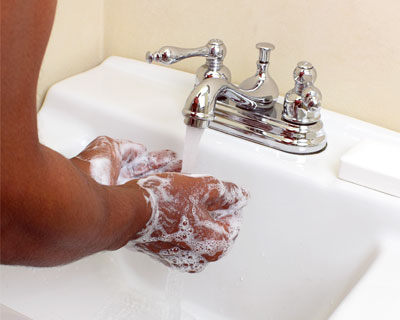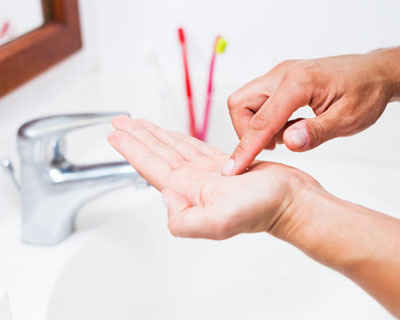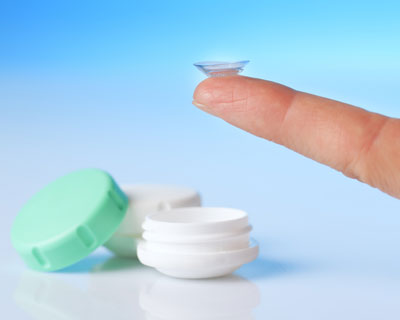Viruses and other microbes that can cause eye infections, such as pink eye, are major pests. We can easily pick up viruses, bacteria and more in our everyday life. Door handles, shopping carts, the arms of chairs, school desks—and similar surfaces at home—are all possible sources.
Once one person has an eye infection, he or she can easily pass it on to loved ones, co-workers and even strangers. But these simple tips can reduce your chances of getting or passing along an eye infection.

Wash Your Hands
You have the best and simplest defense available to you: Wash Your Hands! Frequent hand washing protects you from microbes that get on your skin and helps prevent you from transmitting infections to others. Get hand washing tips from the U.S. Centers for Disease Control.

Don’t Rub Your Eyes
If your eyes water, have any liquid running out of them or itch, don’t rub them with your hands. It’s best to use a soft wash cloth to clean your eyes. If you have a virus, you’re likely to spread it to others once it gets on your hands. And don’t reuse that washcloth for anything else after you clean your eyes.
If you have an eye infection, you should launder any linens, bedding or clothing that might have touched your eyes. This will help keep the virus from spreading to your family, friends and co-workers.

Clean Your Contact Lenses
Many consumers take terrible care of their contact lenses. These little pieces of plastic can become coated in bacteria, viruses and even parasites. These basic steps are a good start for cleaning your contact lenses.

Clean Your Contact Lens Case
Keep your contact lens case clean. Replace it every three months and never top off old solution in the case. Use completely new, store-bought solution every time.
Contact Your Ophthalmologist
If you have symptoms like red, itchy, watery eyes or mucous drainage or your eyelids and lashes are sticking together, you need to be seen by an ophthalmologist. These symptoms could indicate several different problems, including viruses. Find an ophthalmologist member of the American Academy of Ophthalmology quickly and easily on our website.